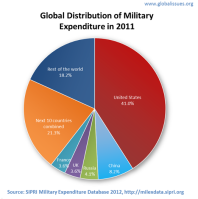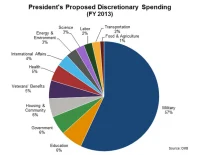*Thanks to John Wilkins at Evolving Thoughts for bringing this to my attention.
- Statue of David sculpted by
Michelangelo Buonarroti
(1475 - 1564 CE) 

Incarcerated Americans as Percent of U.S. Population, 1925-2003. Does not include prisoners held in the custody of local jails, inmates out to court, and those in transit. Less than five percent of the world’s people live in the United States, but we are home to about 25 percent of the world’s prisoners.
About This Site
This blog includes posts on wide-ranging topics of interest to me and/or my students, especially social justice, biology, education, and history. The content, views, and opinions in this blog are mine and in no way reflect those of my employer(s).FAIR USE NOTICE
This site may contain material copyrighted by a third party, the use of which may not have been specifically authorized by that copyright owner. I am making such material available in order to advance an understanding of historical, political, religious, legal, economic, scientific, and environmental issues, especially as they affect human rights and social justice. I believe this constitutes a FAIR USE of any such copyrighted material as is allowed in section 107 of the U.S. Copyright Law. In accordance with Title 17 U.S.C. Section 107, the material within this site is made freely available without any charge, benefit, or profit to individuals who wish to use this collection of information for research and educational purposes only. Should you desire to utilize material copyrighted by a third party that is located here for any purposes beyond a good faith FAIR USE, you certainly must obtain permission from that copyright owner.Dead Link?
Some of the links I've used eventually go to the Great Internet in the Sky. If you find a dead link, please leave a comment to that post, and tell me what link has expired. Thanks!Comment Policy
I consider this weblog an extension of my living room in cyberspace. If you enter a comment that I wouldn't find acceptable in my living room, I'm likely to boot both you and your comment. Thus, I exercise prior restraint. I approve comments when I can get online.What Readers Are Saying
11 Novembre 1927 – D… on February 3, 1857 (a Tuesd… 
森山芳弘 on July 9, 1955 (a Saturday) 
森山芳弘 on July 9, 1955 (a Saturday) Prof. Olsen on July 9, 1955 (a Saturday) 
森山芳弘 on July 9, 1955 (a Saturday) My Favorite Quotations
[Diogenes of Sinope] lit a lamp in broad daylight and said, as he went about, "I am looking for a [virtuous] man."
-- Teaching of Diogenes of Sinope (412–323 BCE) from Lives of Eminent Philosophers by Diogenes Laertius
The unexamined life is not worth living.
-- Socrates, from the Apology by Plato (429–347 BCE)
When truth is buried underground, it grows and it builds up so much force that the day it explodes it blasts everything with it.
-- Émile Zola (1840–1902), French writer and political activist, from J'accuse! published in L'Aurore [The Dawn] (13 Jan 1898)
Economic "progress" is good only to the point of sufficiency, beyond that, it is evil, destructive, uneconomic.
-- E. F. Schumacher (1911-1977), from "Economics in a Buddhist Country" (1955)
Christianity... is the most avowedly materialist of all the great religions… Its own most central saying is: "The Word was made flesh," where the last term was, no doubt, chosen because of its specially materialistic associations. By the very nature of its central doctrine Christianity is committed to a belief in the ultimate significance of the historical process, and in the reality of matter and its place in the divine process.
-- William Temple (1881–1944), Archbishop of Canterbury, from Nature, Man and God (1934), p. 317
The beginnings of cosmic religious feeling already appear [at an early stage] of development, e.g., in many of the Psalms of David and in some of the Prophets. Buddhism, as we have learnt especially from the wonderful writings of Schopenhauer, contains a much stronger element of this. The religious geniuses of all ages have been distinguished by this kind of religious feeling, which knows no dogma and no God conceived in man's image; so that there can be no Church whose central teachings are based on it. Hence it is precisely among the heretics of every age that we find men who were filled with this highest kind of religious feeling and were in many cases regarded by their contemporaries as Atheists, sometimes also as saints. Looked at in this light, men like Democritus, Francis of Assisi, and Spinoza are closely akin to one another.
-- Albert Einstein (1879–1955), from The World as I See It (1934), p. 21.
There are many, you know, who think that this life journey through the world is not the first one we have made. Haven't you ever come across children who knew things that it was impossible for them to have learned? Have you ever gone to a place for the first time and felt sure that you had been there before? That's one of the reasons I do not travel much.
-- Henry Ford (1863-1947), from interview by S.J. Woolf in New York Times Magazine dated 24 July 1938
A human being is a part of the whole, called by us "Universe," a part limited in time and space. He experiences himself, his thoughts and feelings as something separate from the rest—a kind of optical delusion of his consciousness. The striving to free oneself from this delusion is the one issue of true religion. Not to nourish the delusion but to try to overcome it is the way to reach the attainable measure of peace of mind.
-- Albert Einstein (1879–1955), from a letter to Robert S. Marcus dated 12 Feb 1950 quoted in The New Quotable Einstein (2005), p. 206, by Alice Calaprice
[T]he world is in greater peril from those who tolerate or encourage evil than from those who actually commit it.
--Albert Einstein (1879–1955), from his tribute to Pablos Casals (30 March 1953) quoted in Conversations with Casals (1957), by Josep Maria Corredor
There may be times when we are powerless to prevent injustice, but there must never be a time when we fail to protest.
– Elie Wiesel, from his Nobel Lecture, 11 December 1986
Power concedes nothing without a demand. It never did and it never will. Find out just what any people will quietly submit to and you have found out the exact measure of injustice and wrong which will be imposed upon them.
-- Frederick Douglass (1818–1895), in a speech delivered at Canandaigua, New York on 4 August 1857, quoted in Two Speeches by Frederick Douglass (1857), p. 22
To be hopeful in bad times is not just foolishly romantic. It is based on the fact that human history is a history not only of cruelty, but also of compassion, sacrifice, courage, kindness. What we choose to emphasize in this complex history will determine our lives. If we see only the worst, it destroys our capacity to do something. If we remember those times and places — and there are so many — where people have behaved magnificently, this gives us the energy to act, and at least the possibility of sending this spinning top of a world in a different direction. And if we do act, in however small a way, we don’t have to wait for some grand utopian future. The future is an infinite succession of presents, and to live now as we think human beings should live, in defiance of all that is bad around us, is itself a marvelous victory.
-- Howard Zinn (1922-2010), from A Power Governments Cannot Suppress (2006)
Taxation is the price which we pay for civilization, for our social, civil and political institutions, for the security of life and property, and without which, we must resort to the law of force.
-- 1852, Journal of the House of Representatives of the State of Vermont, October Session, 1851, Appendix: Report of the Committee Appointed by the Governor to Take into Consideration the Financial Affairs of the State, Start Page 368, Quote Page 369, Printed by Chauncey Goodrich, Burlington, Vermont.
What I teach now as before, O monks, is dukkha and the cessation of dukkha.
-- Siddhārtha Gautama (563–483 BCE), the Buddha, from Alagaddupama Sutta: The Water-Snake Simile (MN 22)
Once Chuang Chou dreamt he was a butterfly, a butterfly flitting and fluttering around, happy with himself and doing as he pleased. He didn't know he was Chuang Chou. Suddenly he woke up and there he was, solid and unmistakable Chuang Chou. But he didn't know if he was Chuang Chou who had dreamt he was a butterfly, or a butterfly dreaming he was Chuang Chou. Between Chuang Chou and a butterfly there must be some distinction! This is called the Transformation of Things.
-- Chuang Tzu (369—298 BCE), from The Complete Works Of Chuang Tzu, chapter 2, translated by Burton Watson (1968)
Nothing is so insufferable to man as to be completely at rest, without passions, without business, without diversion, without study. He then feels his nothingness, his forlornness, his insufficiency, his dependence, his weakness, his emptiness.
-- Blaise Pascal (1623–1662), from Pascal's Pensees (1669)
Those who cannot remember the past are condemned to repeat it.
-- George Santayana (1863–1952), from The Life of Reason, Vol. 1, chapter 12 (1905–1906), Charles Scribner & Sons, p. 284
There is nothing which can better deserve [our] patronage, than the promotion of Science and Literature. Knowledge is in every country the surest basis of publick happiness.
-- George Washington, in his address to Congress on 8 January 1790
Establish & improve the law for educating the common people...The tax which will be paid for this purpose is not more than the thousandth part of what will be paid to kings, priests & nobles who will rise up among us if we leave the people in ignorance.
-- Thomas Jefferson, in a letter to George Wythe dated 13 August 1786
Laws for the liberal education of youth, especially for the lower classes of people, are so extremely wise and useful that to a humane and generous mind, no expense for this purpose would be thought extravagant.
-- John Adams, from Thoughts on Government, April, 1776
It is ironic that the United States should have been founded by intellectuals; for throughout most of our political history, the intellectual has been for the most part either an outsider, a servant, or a scapegoat.
-- Richard Hofstadter, from Anti-Intellectualism in American Life, pp. 145-146
Shake off all the fears & servile prejudices, under which weak minds are servilely crouched. Fix reason firmly in her seat, and call to her tribunal every fact, every opinion. Question with boldness even the existence of a God; because, if there be one, he must more approve of the homage of reason, than that of blindfolded fear.
-- Thomas Jefferson, in a letter to his nephew, Peter Carr, dated 10 August 1787
If ever there can be a cause worthy to be upheld by all toil or sacrifice that the human heart can endure, it is the cause of Education.
-- Horace Mann (1796–1859), from Thoughts Selected from the Writings of Horace Mann (1872), p. 7.
The all-important fact in the situation is this; any time the college professors of America get ready to take control of their own destinies, and of the intellectual life of their institutions, they can do it. There is not a college or university in the United States today which could resist the demands of its faculty a hundred percent organized and meaning business.
-- Upton Sinclair (1878–1968), from The Goose-Step: A Study of American Education (1923), p. 458
I hope we shall... crush in it’s birth the aristocracy of our monied corporations which dare already to challenge our government to a trial of strength and bid defiance to the laws of our country.
-- Thomas Jefferson, in a letter to George Logan dated 12 November 1816
It is, no doubt, a very laudable effort, in modern teaching, to render as much as possible of what the young are required to learn, easy and interesting to them. But when this principle is pushed to the length of not requiring them to learn anything but what has been made easy and interesting, one of the chief objects of education is sacrificed. I rejoice in the decline of the old brutal and tyrannical system of teaching, which however did succeed in enforcing habits of application; but the new, as it seems to me, is training up a race of men who will be incapable of anything which is disagreeable to them....A pupil from whom nothing is ever demanded which he cannot do, never does all he can.
-- John Stuart Mill (1806–1873), from the Autobiography of John Stuart Mill (1924), p. 37
How comes it that a cripple does not offend us, but that a fool does? Because a cripple recognizes that we walk straight, whereas a fool declares that it is we who are silly; if it were not so, we should feel pity and not anger.
-- Blaise Pascal (1623–1662), from Pascal's Pensees (1669)
The suppression of uncomfortable ideas may be common in religion or in politics, but it is not the path to knowledge, and there's no place for it in the endeavor of science.
-- Carl Sagan, from the Cosmos television series
The young specialist in English Lit ... lectured me severely on the fact that in every century people have thought they understood the Universe at last, and in every century they were proved to be wrong. It follows that the one thing we can say about our modern "knowledge" is that it is wrong. ... My answer to him was, "... when people thought the Earth was flat, they were wrong. When people thought the Earth was spherical they were wrong. But if you think that thinking the Earth is spherical is just as wrong as thinking the Earth is flat, then your view is wronger than both of them put together."
-- Isaac Asimov, The Relativity of Wrong, Kensington Books, New York, 1996, p 226.
A time is coming when those who are in the mad rush today of multiplying their wants, vainly thinking that they add to the real substance, real knowledge of the world, will retrace their steps and say what have we done? Civilizations have come and gone and in spite of all our vaunted progress, I am tempted to ask again and again: To what purpose?
-- Mohandas K. Gandhi (1869–1948) from D.G. Tendulkar, Mahatma: Life of Mohandas Karamchand Gandhi Vol. 2, 2nd edn.(1960), p. 29.
Can we reconcile the idea that copying errors are an essential prerequisite for evolution to occur, with the statement that natural selection favours high copying-fidelity?
-- Richard Dawkins, from The Selfish Gene (2006) Oxford Univ. Press, p. 17
Let me try to make crystal clear what is established beyond reasonable doubt, and what needs further study, about evolution. Evolution as a process that has always gone on in the history of the earth can be doubted only by those who are ignorant of the evidence or are resistant to evidence, owing to emotional blocks or to plain bigotry. By contrast, the mechanisms that bring evolution about certainly need study and clarification. There are no alternatives to evolution as history that can withstand critical examination. Yet we are constantly learning new and important facts about evolutionary mechanisms.
-- Theodosius Dobzhansky (1900–1975), from "Nothing in Biology Makes Sense Except in the Light of Evolution", The American Biology Teacher Vol.35, No. 3 (March 1973), pp. 125-129
... there are many reasons why you might not understand [an explanation of a scientific theory] ... Finally, there is this possibility: after I tell you something, you just can't believe it. You can't accept it. You don't like it. A little screen comes down and you don't listen anymore. I'm going to describe to you how Nature is - and if you don't like it, that's going to get in the way of your understanding it. It's a problem that [scientists] have learned to deal with: They've learned to realize that whether they like a theory or they don't like a theory is not the essential question. Rather, it is whether or not the theory gives predictions that agree with experiment. It is not a question of whether a theory is philosophically delightful, or easy to understand, or perfectly reasonable from the point of view of common sense. [A scientific theory] describes Nature as absurd from the point of view of common sense. And it agrees fully with experiment. So I hope you can accept Nature as She is - absurd.
--Richard P. Feynman (1918–1988), from QED: The Strange Theory of Light and Matter (Feynman 1985), pp. 9-10
Males do not represent two discrete populations, heterosexual and homosexual. The world is not to be divided into sheep and goats. Not all things are black nor all things white. It is a fundamental of taxonomy that nature rarely deals with discrete categories. Only the human mind invents categories and tries to force facts into separated pigeon-holes. The living world is a continuum in each and every one of its aspects. The sooner we learn this concerning human sexual behavior, the sooner we shall reach a sound understanding of the realities of sex.
-- Alfred C. Kinsey, Wardell R. Pomeroy, and Clyde E. Martin. Sexual Behavior in the Human Male. (Philadelphia, Pa: W.B. Saunders, 1948) pp. 610-666.
In a republican nation, whose citizens are to be led by reason and persuasion, and not by force, the art of reasoning becomes of first importance.
--Thomas Jefferson in a letter to David Harding, from Monticello, 20 April 1824; found in H.A. Washington, ed., The Writings of Thomas Jefferson (New York : H.W. Derby, 1861).-
Join 245 other subscribers
My Store
My Publications
Most Popular Content Today
 Word of the Day
Word of the Day Quote of the Day
Quote of the Day History of the Day
History of the DayBlogroll
- ALEC Exposed
- Austringer, The
- Blog around the Clock, A
- Boxun News
- Business & Human Rights Resource Centre
- China Daily Mail
- China Digital Times
- ChinaGeeks
- chinaSMACK
- Chinese Human Rights Defenders
- Clawback
- Cult News from Rick Ross
- Diane Ravitch's Blog
- Discovering Biology in a Digital World
- Dispatches from the Culture Wars
- Dispersal of Darwin, The
- Dui Hua Human Rights Journal
- Education Notes
- Evolution Blog
- Evolving Thoughts
- Fill the Square
- Free Tibetan Heroes
- Freedom House
- Global Voices: East Asia
- Holysmoke.org
- Hong Kong Alliance in Support of Patriotic Democratic Movements of China
- How the University Works
- In the Public Interest
- Inside Higher Ed
- John Hawks Anthropology Weblog
- Junct Rebellion
- Laelaps
- Letters of Note
- Military-Industrial Complex, The
- Millard Fillmore's Bathtub
- National Evolutionary Synthesis Center (NESCent)
- Not Exactly Rocket Science
- Panda’s Thumb, The
- Pharyngula
- Playing Chess with Pigeons
- Race to Nowhere – the movie
- Rationally Speaking
- Reporters Without Borders (Reporters sans frontières)
- Research Blogging
- Rheefirst!
- Right Wing Watch
- Sandwalk: Strolling with a Skeptical Biochemist
- Schools Matter
- Schumacher Center For New Economics
- Sensuous Curmudgeon, The
- Sex, Genes, and Evolution
- Students for a Free Tibet
- Susan Ohanian Speaks Out
- Tea Leaf Nation
- The Center for Public Integrity
- The Loom
- The National Center for Fair & Open Testing (Fair Test)
- The National Security Archive
- The TalkOrigins Archive
- ThinkProgress
- This Week in Evolution
- This Week in Peace and Social Justice History
- Tibet Justice Center
- Tibetan Centre for Human Rights and Democracy
- Truth From Error
- Why Evolution Is True
- Yong Zhao
My Favorite Websites
- A Walk Through Time
- Adbusters
- Anatomy Atlases
- AntiEvolution.org
- Brainmuseum.org
- Bulletin of the Atomic Scientists
- CCFC: Campaign for a Commercial-Free Childhood
- Charles Darwin's Beagle Diary
- Decline of American Education
- Educational Games
- eSkeletons
- Fossil Hominids: The Evidence for Human Evolution
- Good Jobs First
- Grade Inflation at American Colleges and Universities
- Intelligent Design Watch
- James Randi Educational Foundation
- Media Education Foundation
- Museum of Hoaxes
- National Center for Science Education
- NCBI – Bookshelf
- NEA Policy Statement on the Use of Contingent Faculty in Higher Education
- OpenJurist
- Selected Papers on Evolution
- Skeptoid
- SourceWatch
- Strange Science: The Rocky Road to Modern Paleontology and Biology
- The Alfred Russel Wallace Website
- The Brain from Top to Bottom
- The Complete Work of Charles Darwin Online
- The Critical Thinking Community
- The Darwin Correspondence Project
- The Fallacy Files
- The Huxley File
- The Skeptic's Dictionary: Evaluating Personal Experience
- Tree of Life Web Project
- Understanding Evolution
- Understanding Science
- Virtual Museum of Fossils
My Professional Memberships
“I consider it important, indeed urgently necessary for intellectual workers to get together, both to protect their own economic status and also, generally speaking, to secure their influence in the political field.”

-- Albert Einstein, charter member AFT Local 552 Princeton University, comments in 1938 on why he joined the union. In addition, he had also joined the American Association of University Professors in 1935.
Calendar
May 2024 S M T W T F S 1 2 3 4 5 6 7 8 9 10 11 12 13 14 15 16 17 18 19 20 21 22 23 24 25 26 27 28 29 30 31 Search
Archives
Categories
Tag Cloud
Abraham Lincoln Academic Freedom Alan Turing Alfred Russel Wallace American Association of University Professors Anti-Intellectualism Anti-Rationalism Astrobiology Astronomy Bayard Rustin Botany Buddhism Central Intelligence Agency Charles Darwin China CIA Contingent Faculty Corporatization Creationism Democide Democracy Wall Movement Dwight Eisenhower Ecology Economics Education Education Reforms Ernst Haeckel Evolution Galileo Gay Genetics and Development Genocide Geology GLBT Global Warming Grade Inflation Guatemala Hate Crimes Hiroshima History Homo erectus Homophobia Human Anatomy Human Evolution Human Physiology Humor Isaac Newton Japanese American Internment John Stuart Mill Law LGBT Liao Yiwu Liu Xiaobo Martial Arts Massacre Medicine Military Spending Nagasaki Physics Politics Racism Religion Research Blogging Salem Witch Trials Scientific Method Social Justice Spontaneous Generation Stonewall Uprising Superstition Tenure Tiananmen Tibet Torture War Crimes ZoologyBlog Stats
- 602,378 hits






















You must be logged in to post a comment.